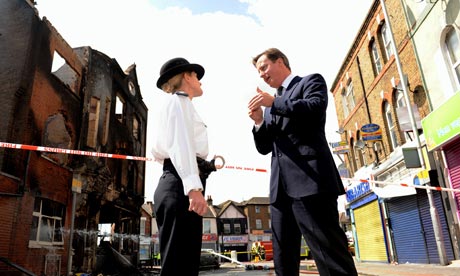Whatever happened to the dip? Once the apogee of sophisticated entertaining in their dinky quartered tubs, these gloopy mixtures – thousand island, cheese and chive, the graveyard of a million splintered Pringles – were quietly dethroned, sometime in the late 1990s, by an invasion from the eastern Mediterranean: salmon pink taramasalata, garlicky tzatziki and, most successful of all, hummus, the colour and texture of wet mortar. Suddenly, the world went beige.
Of course, it wasn't long before we made hummus our own, adding sweet chilli sauce, pesto, sun-dried tomatoes – in fact, the chickpea has good-naturedly absorbed well-nigh every
food fad that's gripped the nation over the last decade – but despite its popularity, very few of us actually make our own. Which is a shame, because fresh hummus is a world away from the sour slurry, seasoned with preservatives, and solid enough to retile the bathroom with, sold under the name in many supermarkets – and half the price too.
Chickpeas in our time: tinned v dried v posh
The beauty of hummus, as far as I'm concerned, is how easy it is to sling together at the last minute from the cupboard – a tin of chickpeas, a spoonful of tahini, some lemon juice and garlic, and you've got the makings of lunch … as well as plenty of time to reflect upon your sins in using such inferior produce, because no true hummus head can abide tins. They're all wrong texturally, apparently, and the flavour … well, according to blogger Helen Graves, they
"pong" to boot. Well, that's me told.
 Claudia Roden's hummus recipe with (clockwise from top left), tinned, dried, jarred and skinned tinned chickpeas. Photograph: Felicity Cloake for the Guardian
Claudia Roden's hummus recipe with (clockwise from top left), tinned, dried, jarred and skinned tinned chickpeas. Photograph: Felicity Cloake for the Guardian However, in the interests of lazy cooks everywhere, I'm making two identical hummuses from
Claudia Roden's recipe in Arabesque – one using dried chickpeas, as she directs, and one with a tin from the cupboard. The dried chickpeas definitely have a nuttier flavour (although, having helped myself to a few, I reject the idea that the others are actively unpleasant), but they also give the hummus a grainier texture. I've obviously been lucky with my tin; according to complaints online, many brands are crunchy and undercooked, whereas the Italian ones sold by my local (Turkish) grocer are fast approaching mushy.
Flavourwise though, I need to trade up, which is where Lebanese food writer
Anissa Helou comes in. Although she decries such conveniences in her 2003 book, Lebanese Cuisine ("I do not like the taste or texture of tinned food"), by 2007's Modern Mezze, her attitude has relented: "I used to make hommus the old-fashioned slow way … However, you can now buy jars of excellent ready-cooked chickpeas, preserved in water and salt, without added artificial preservatives".
I find some in my local overpriced organic supermarket, modestly priced at just £2.99 for 425g – but I can at least see the difference. They're double the size of the tinned sort, and the hummus I make with them is buttery and smooth, with what my flatmate describes in a forced blind tasting as a "lovely flavour". If you're going to cheat, do it properly.
Secret (softening) agents
The problem with Roden's chickpeas may well be that, despite lengthy pre-soaking (28 hours, in fact), and four hours of cooking to render them edible, they're just not soft enough. I suspect my local shop, which bills itself as a Mediterranean Supermarket, has quite a high turnover in the dried chickpea department, but the fact remains that, without a pressure cooker, melting softness can be quite difficult to achieve – and it's absolutely vital for good hummus.
 Ottolenghi recipe hummus. Photograph: Felicity Cloake for the Guardian
Ottolenghi recipe hummus. Photograph: Felicity Cloake for the Guardian Everyone else, from Anissa Helou to Yotam Ottolenghi, recommends adding a little bicarbonate of soda to the soaking water: this time-honoured trick, according to kitchen chemistry whizz Hervé This, prevents the calcium in my London tapwater from cementing together the pectin molecules in the pea's cell walls – in fact, the alkaline water that it produces actively encourages these pectins to separate, producing a softening effect (I recommend a perusal of This's
Kitchen Mysteries for a more coherent scientific explanation).
Ottolenghi uses 1½ tbsp bicarb per 500g dried chickpeas: 1 tbsp in the soaking water, and the rest in the pan. After the same soaking period as Roden's, his chickpeas take a quarter of the time to cook – and achieve that lovely fluffy texture which makes such great hummus. Nigella, meanwhile, who makes a very sensible point about the global conspiracy to pretend chickpeas cook far quicker than they do (see also,
risotto), uses a slightly
different method, credited to her mentor, Anna del Conte.
She soaks the dried chickpeas in cold water and a mixture of bicarb, flour and salt – the last, according to Harold McGee, speeds the eventual cooking time, but reduces the swelling of starch granules within the beans, giving a "mealy internal texture, rather than a smooth one", but the rationale behind the flour I'm unable to fathom. In any case, Nigella's chickpeas take very slightly longer than Ottolenghi's, and have a slightly grittier texture, so I'll trust the latter on this one.
(Two points to note – too much bicarb can give the chickpeas an unpleasant soapy quality, so always err on the side of caution. It's also been suggested that it robs them of much of their nutritional value, but I couldn't find any data on this, or what effect the alternative, a much lengthier cooking time, has: all information most welcome.)
Two top tips
 Paula Wolfert hummus. Photograph: Felicity Cloake for the Guardian
Paula Wolfert hummus. Photograph: Felicity Cloake for the Guardian While trawling through reams of hummus lore online, I come across
Paula Wolfert's claim that, during an assignment on "the best hummus in Israel", she discovered that peeling chickpeas gave a "superior colour and flavour" to the end product. The fact that chickpeas even had skins was news for me, but they're actually very easy to slip off, once the chickpeas are cooked; although given the size of the things, it's a mindless, rhythmic activity for a night in front of the telly. I don't like the texture it gives Roden's recipe though – hummus varies from chunky to silken smooth, and this is too far down the latter road to for my taste; more like a mousse than a dip.
Wolfert also passes on a tip she picked up on her trip: mixing the tahini with lemon juice and garlic until it "tightens up", and then loosening it with cold water before stirring it into the hummus – a move intended to create a lighter, creamier texture. She's right on this one – it makes a subtle, but discernible difference, preventing the clagginess that sometimes dogs this dip.
Flavourings
Although I'm not averse to abusing the chickpea's easy-going nature on occasion (I can particularly recommend the carrot and cardamom hummus from Alice Hart's new book,
Vegetarian), here I'm sticking to the time-honoured quartet of chickpeas, tahini, lemon juice and garlic – no
peanut butter, Nigella, and no dried mint thank you Elizabeth David.
 Nigella recipe hummus. Photograph: Felicity Cloake for the Guardian
Nigella recipe hummus. Photograph: Felicity Cloake for the Guardian Nigella's basic recipe, however, is interesting in that it's
lightened with Greek yoghurt – "as far as authenticity goes, I don't make any claims," she admits, but "homemade hummus can be stodgy and claggy, and I love the tender whippedness that you get in restaurant versions". I agree – it adds richness without weight, but after experimenting, I discover a similar texture can be achieved through judicious application of chickpea cooking water.
I don't think you need the olive oil Nigella adds either; I prefer to keep mine as a topping, to be soaked up by the pitta – but one innovation I will be keeping is her pinch of cumin. It's not a standard ingredient, although by no means unknown in the Middle East, but it makes a real difference to the end result.
The balance of garlic and lemon juice is very personal, but I'd stick with the ratio of tahini to chickpea given here: too much of the sesame seed paste gives a sticky, sweet result – I think even Ottolenghi overplays it. As my tester observes, hummus ought to taste of chickpeas.
How to top it
Hummus is, of course, ideal dipping material, but it can also be dressed up into a proper meal –
Ottolenghi's recipe in
Plenty has it with broad bean paste, hard-boiled eggs and raw onion (not "the lightest affair, but … completely delicious"), while the
recipe in the Moro cookbook includes a sweetly spiced topping of minced lamb, caramelised onions and pine nuts, which I urge you to try. Even if you're serving it as a dip, a sprinkling of paprika, or (my own personal favourite), lemony za'tar, sets it well apart from the common supermarket herd.
Perfect hummus
 Felicity's perfect hummus. Photograph: Felicity Cloake for the Guardian
Felicity's perfect hummus. Photograph: Felicity Cloake for the Guardian Hummus may be simple, but that doesn't mean it's easy – there's an awful lot of disappointing dips out there. Take time to cook the chickpeas properly, and season ever-so-gradually, until the heat of the garlic, and the zing of the lemon suits your particular idea of perfection, and you'll remember just why this unassuming Middle Eastern staple stole our hearts in the first place.
Serves 4
200g dried chickpeas
1½ tsp bicarbonate of soda
6 tbsp tahini
Juice of 1 lemon, or more to taste
3 cloves garlic, crushed, or according to taste
Pinch of cumin
Salt, to taste
Olive oil, to top
Paprika or za'tar, to top (optional)
1. Put the chickpeas in a bowl and cover with twice the volume of cold water. Stir in 1 tsp of bicarbonate of soda and leave to soak for 24 hours.
2. Drain the chickpeas, rinse well and put in a large pan. Cover with cold water and add the rest of the bicarb. Bring to the boil, then turn down the heat and simmer gently until they're tender – they need to be easy to mush, and almost falling apart, which will take between 1 and 4 hours depending on your chickpeas. Add more hot water if they seem to be boiling dry.
3. Leave them to cool in the water, and then drain well, reserving the cooking liquid, and setting aside a spoonful of chickpeas as a garnish. Mix the tahini with half the lemon juice and half the crushed garlic – it should tighten up – then stir in enough cooled cooking liquid to make a loose paste. Add this, and the chickpeas, to a food processor and whizz to make a purée.
4. Add the cumin and a generous pinch of salt, then gradually tip in enough cooking water to give a soft paste – it should just hold its shape, but not be claggy. Taste, and add more lemon juice, garlic or salt according to taste.
5. Tip into a bowl, and when ready to serve, drizzle with olive oil, garnish with the reserved chickpeas and sprinkle with paprika or za'tar if using.
Is hummus a near-sacred foodstuff, or a bland, beige paste with good PR? Will anyone come out in favour of tinned chickpeas – or exotic flavourings? – and please, what on earth should I do with 8 bowls of the stuff?
 larger | smaller
larger | smaller 









